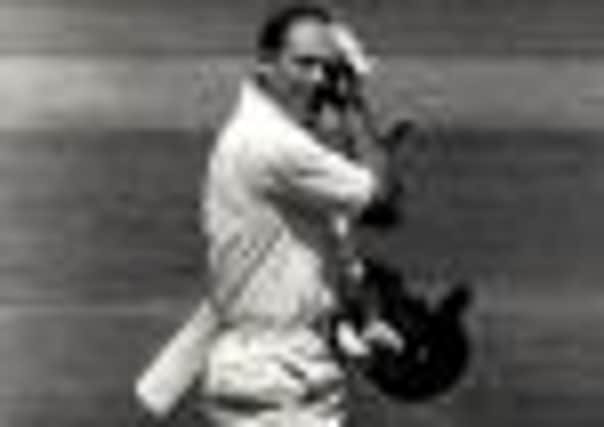Sporting Bygones: Presidency icing on the cake for the man who split Yorkshire cricket right down the middle


Why, if I had a pound for every time someone has asked me that since I joined the newspaper in 2004, the answer would be: “I spend it sipping champagne on my yacht in Barbados.”
The reality, unfortunately, is somewhat different: bits of football here and there, features, bygones columns, general columns, while still keeping an eye on cricketing developments, both county and international.
Advertisement
Hide AdAdvertisement
Hide AdHad I been doing this job in the late 1970s/early 1980s, however, the answer would have been simple... “I do exactly what I do during the summer – I write exclusively about Yorkshire cricket.”
Back then, Yorkshire cricket was rarely off the front pages – let alone the back ones.
Be it flaming June or freezing February, the biggest club in the world lived up to its reputation as a melting pot of incident and intrigue.
Typically, this revolved around Geoffrey Boycott – a figure as synonymous with Yorkshire cricket as oranges and lemons are as synonymous with the Bells of St Clement’s.
Advertisement
Hide AdAdvertisement
Hide AdYorkshire – or ‘Boycottshire’ as it was known then – became split down the middle as he polarised opinion in a manner arguably unique in professional sport.
While some thought he was the greatest thing since sliced bread, others were less than smitten and rarely, if ever, did the twain meet.
On Saturday, Boycott will be elected Yorkshire president at the annual meeting at Headingley Carnegie.
Although he has served on the board since 2006, it will mark something of a high point for a man who remains the third-highest first-class run-scorer in the club’s history with 32,570 at 57.85, including 103 hundreds.
Advertisement
Hide AdAdvertisement
Hide AdBoycott is the unanimous choice of the Yorkshire board to succeed Raymond Illingworth for a two-year term and has said that the honour would be “the icing on the cake of my cricketing life”.
It is a life which has known more than its share of ups-and-downs, most notably the throat cancer he fought so bravely to overcome in recent years, and none more turbulent in a cricketing sense than those years in the 1970s/1980s.
One would require the platform of a whole newspaper – let alone the podium of a single column – to detail the whys and wherefores of that extraordinary period.
Suffice to say that the troubles effectively began when Boycott was appointed captain in 1971.
Advertisement
Hide AdAdvertisement
Hide AdFrom the start, there was opposition from within the dressing room amid accusations that Boycott was more concerned with himself than the team – a charge that dogged him throughout his career.
As Yorkshire struggled through the 1970s, a shadow of the side that dominated county cricket a decade earlier, opposition to Boycott steadily grew.
In 1978, he was sacked as captain and faced calls from such as his former Yorkshire and England team-mate Fred Trueman to quit the club.
Although Boycott was not for budging, problems simmered in the background.
Advertisement
Hide AdAdvertisement
Hide AdThese came to a head in August, 1983, when he was reprimanded for slow scoring during a game against Gloucestershire at Cheltenham.
Boycott made 140 from 347 balls after apparently disregarding Illingworth’s instruction to “get a move on”.
Boycott’s supporters were incandescent and demanded a special meeting of the Yorkshire committee to discuss the affair.
However, the plot took a fresh twist when Yorkshire decided not to offer Boycott a contract for the following summer.
Advertisement
Hide AdAdvertisement
Hide AdBoycott’s supporters then launched a campaign to reinstate him. The Members 84 Group was formed and necessary signatures obtained to force Yorkshire to stage a special meeting at which the decision to sack Boycott was put to the will of the Yorkshire public.
This took place at Harrogate in January, 1984, as the pot spectacularly came to the boil.
All three pro-Boycott resolutions were carried and the Yorkshire committee was overthrown, the likes of Trueman, Bob Platt and Ronnie Burnet losing their seats.
Seventeen of the 21 pro-Boycott candidates prevailed – including Boycott himself, who won the Wakefield seat and thus took the dual role of player and committee man, a position he held until his playing career ended in 1986.
Advertisement
Hide AdAdvertisement
Hide AdInevitably, given what happened back then, pockets of opposition to Boycott remain.
But, by and large, the club has moved on.
It was arguably the darkest period in any county’s history, an era of possibly unprecedented turmoil.
Regardless of the rights and wrongs, it is an era which Yorkshire’s supporters will continue to debate for evermore.